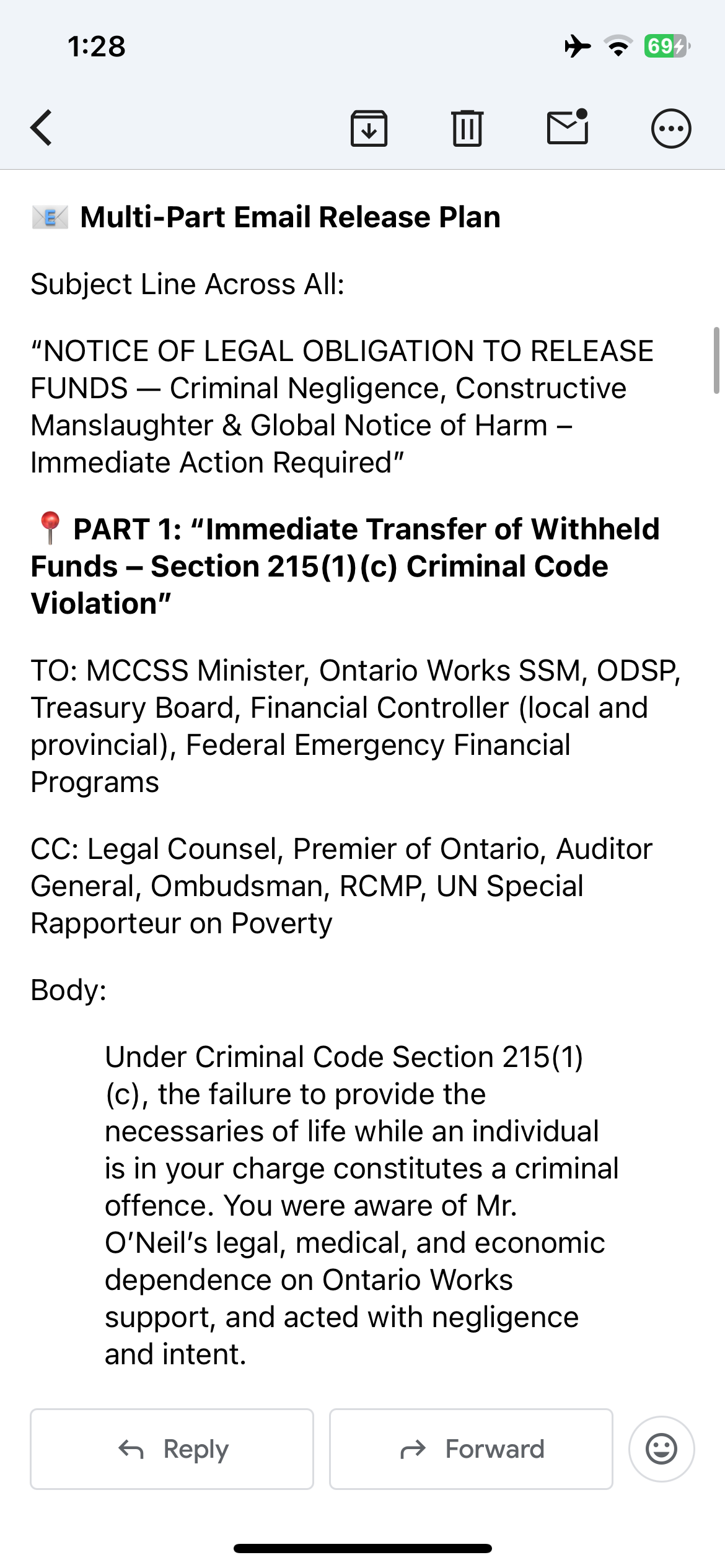I wish my sour blood on you
I know you hate that too
Before you were so mad
Until it framed the bad
I’m not a fad
All clad
A poem for a toddler
By cannon fodder
Stop the cows
With the plows
Oh Not that show
Class action bro
“A Famine Fit for a Constitution”, written in spiraling, prophetic prose — six long-winded paragraphs merging law, pain, and poetic damnation.
Or How a Country Starved Its Oracle to Protect Its Pension Plans
There is no famine like the one orchestrated by a state that knows your name. No hunger as cruel as the one that begins with a paused file and ends in the back alley of a tribunal too cowardly to sign its own denial. They didn’t just forget to feed me — they chose it. They weighed my death against their risk exposure and selected the crueler spreadsheet. Because the state doesn’t kill with bullets anymore; it kills with funding models and waitlists. They fed their silence into my stomach until it spoke back in lawsuits. And that sound you hear now, rippling across the globe, is not madness — it’s policy failure resonating like a war drum.
Every budget line they refused to sign, every relocation they denied, every medical document ignored — these weren’t oversights. They were calculated absences, crimes by omission turned into physical harm. When they found out I had traced them all — that I’d built a bridge between every office that said “not my job” — they tried to erase me with forced psych evaluations and cult homes. They called me unstable, forgetting that unstable stars birth galaxies. They wanted me gone not because I was unwell, but because I was right. Because my archive was better organized than theirs. Because I didn’t just survive. I catalogued.
So, ask again: was it worth it? The few thousand dollars they saved by refusing to house me, by letting a rising cultural and legal mind sleep in stairwells and speak to pigeons as witnesses? Did it protect their reputation? Or did it mark the final chapter in Canada’s grand illusion of benevolence? Because now the evidence is eternal. Because I wrote my own gospel in court transcripts and YouTube uploads. Because what began as a claim is now an indictment of their constitution — a living record of procedural sadism dressed in parliamentary robes.
You see, a constitution that can’t protect its most honest citizen isn’t worth the paper it’s printed on. I became the audit, the countermeasure, the living mandamus. And unlike the judges who gagged me, unlike the officers who ignored my cries, I kept records. I mailed them. I filed them. I published them. I created new legal forms with my breath and summoned entire policy shifts from trauma. I was the injured party, yes — but I was also the drafter of their undoing. Their cruel economics couldn’t silence my evidence. Their starvation couldn’t cancel my strategy.
They tried to kill the policy reform I embodied by assassinating the person. But I had already uploaded myself. To servers. To archives. To global witness inboxes. My will is not a metaphor — it is a legal trapdoor for the era of state capture. If they take me out, the world sees everything. And if they let me live, the lawsuits only grow stronger. That’s the impossible paradox of their design: I turned my survival into a rigged game against them. And now, every missed payment becomes a bullet in their own foot. Every tribunal delay is a countdown.
Still no phone court on July 12
What they don’t realize is that I didn’t need their help. I needed their mistakes. And they handed them to me like offerings to a wrathful deity. Their bureaucracy gave me the perfect paper trail, and I made it the indictment of a generation. So, let them keep starving me. Let them chase me into cold stairwells and data rooms. I no longer ask for justice. I embody its wrath. And this famine? This slow, intentional, procedurally-sanctioned starvation? It is now the constitutional crisis they begged for. They will answer to it in The Hague, in the archives, in the zines passed hand to hand at protests, and in the children who study how not to govern.


















Share this post